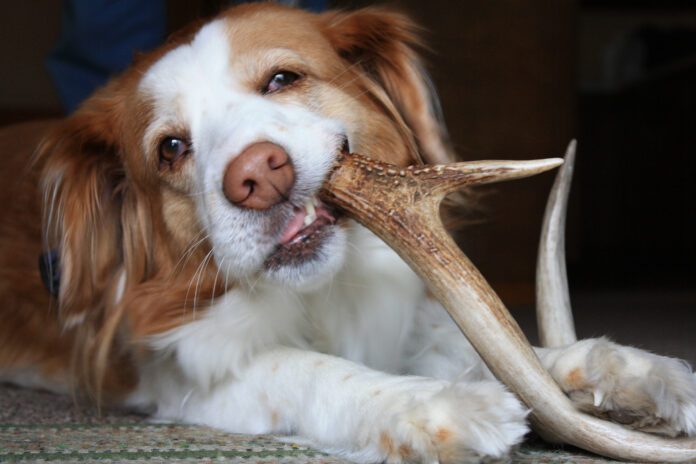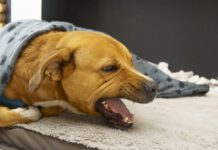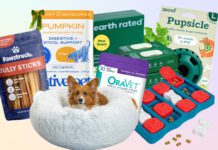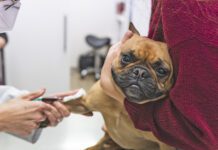The biggest risk to your dog from chewing on antlers is broken teeth. Commercially sold antlers, usually deer or elk, are extremely hard with an unforgiving surface, like a rock or concrete. Would you let your dog chew on rocks or concrete? Of course not!
No veterinary dental specialist will ever sign off on letting your dog chew antlers. Never. Broken teeth are painful for your dog and often lead to infection and tooth root abscesses. Fractured teeth frequently require surgical extraction, subjecting your dog to an expensive and painful procedure for something that is completely preventable.
Antlers Can Splinter
Antlers also pose a risk of cracking or splintering, thereby becoming a choking hazard, esophageal foreign body, or intestinal blockage. There are far better and safer choices for a dog dental chew.
Why Are Antlers Sold as Dog Chews?
Antlers do have some appealing traits that cause people to buy them and, since folks are buying them, manufacturers will produce them.
Antlers are long lasting. Your dog will not go through an antler in one sitting like they might a rawhide or other softer, ingestible chew. And dogs love them! They smell good. They taste good. And they bring out your dog’s inner wild canine. And they are more natural to the dog than, for example, a Nylabone, which appeals to many pet owners.
Safer Choices
Regardless of the positive aspects of antlers, there are plenty of safer choices for your dog to chew. Whether you choose to give your dog antlers to or not depends on the amount of risk you are willing to take. In my professional opinion, they are definitely not worth the risk.







Your article addresses the “commercial” antlers but not those that are natural, such as those that have been shed and found in the woods or the ones acquired during the deer hunting season. Since they haven’t been treated in any way, what risk do they pose?
What are your suggestions for “better choices”? We have given ours several different species of antlers, because other choices are too dangerous. Would love to hear your thoughts.
This is an informative article and I completely respect the knowledge and opinions of vets. I also agree 100% that deer and elk antlers tend to crack, splinter and can even break off in chunks. But moose antlers were not mentioned and they’re entirely different from deer and elk. No amount of chewing will break or splinter a properly cut antler. I’ve used and sold moose antler “splits” (8-12″ lengths of 1.5-2″ diameter, split lengthwise and with points cut off) for a decade and have never witnessed one breaking or splintering. I wouldn’t describe the hardness as being anywhere near that of rock or concrete, either! The inside texture of a moose antler is very similar to bone, yet it’s safer than bone because it’s not as porous. The interior is able to be gradually worn down but will not splinter or break off in chunks.
The only time I’ve seen an antler break, it was mislabeled as moose but was actually elk. (Some companies overseas are selling elk but labeling it moose because most consumers don’t know the difference and they can charge more for moose). In 10 years of selling many thousands of split moose antlers with points removed, I’ve never had a customer complain that an antler has splintered or broken apart and have had no reports of cracked teeth.
Yes, a whole antler (one that has not been split) or an entire moose rack can probably break a tooth. But the canine tooth is designed for gnawing flesh AND bone and their brain is designed to love doing both! So I instead of making the umbrella statement “all antlers are bad”, I would instead advise dog parents to research the different types & suppliers, know their dogs’ chewing habits and don’t let them chew anything for hours upon end. Regularly inspect teeth and only give bone-like chews to medium to XL sized adult dogs who have good dental health.
We tell our customers product info on the website to avoid hard chews for senior dogs, smaller dogs and puppies. But I see no reason to universally advise against all antlers. Just be sure it’s a naturally shed, unbleached, unbaked, moose antler sourced from a reputable supplier in North America and that your dog’s teeth are not already compromised.
How can i purchase the antlers you sell